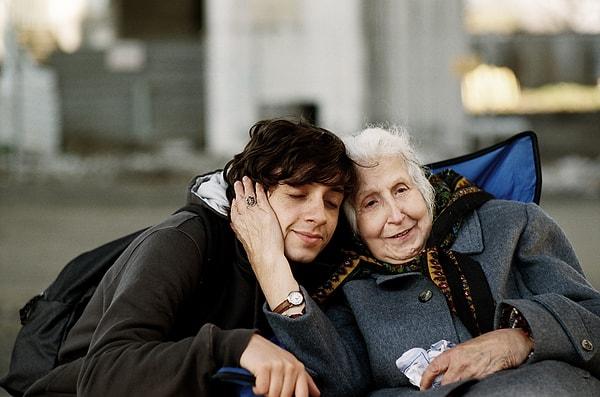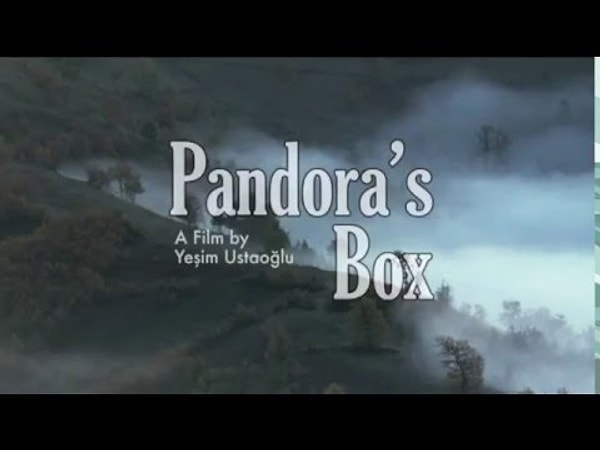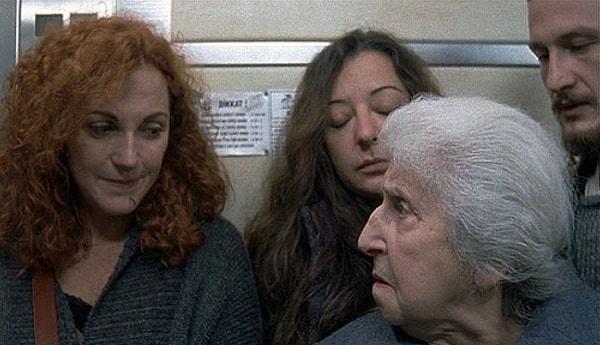'Pandora'nın Kutusu' - 'Pandora's Box' is a Turkish film that tells a poignant tale of alienation and loneliness set against the backdrop of modern life, exploring universal themes that touch on human nature, such as the loss of ideals and creeping conformity, miscommunication, guilt, fear, and profound isolation. The film's cast brings life to this multi-layered narrative with their riveting performances. Tsilla Chelton portrays the character of Nusret, while Derya Alabora, Övül Avkıran, Onur Ünsal, Osman Sonant, Tayfun Bademsoy, and Nazmi Kırık take up other significant roles.
Pandora's Box: A Gripping Tale of Modern Alienation and Human Nature

The Narrative: A Journey of Self-Discovery Amidst Shared Struggles

Confronting the Past and Facing the Future

As they embark on a journey to find their mother, they are compelled to face their past, their memories, and their evolving identities. This journey brings buried secrets and unresolved issues to the surface, which lead to a deeper self-confrontation for each character. Their eventual reunion with their mother and her return to Istanbul transforms into a challenging life test that resonates with relatable struggles and poignant lessons.
The Bridge Between Generations and the Beacon of Hope
The person who emerges most enlightened from this trial is Nusret's grandson, Murat. He serves as the conduit between the past, the present, and the future. He carries the weight of the family's traditions while dealing with the challenges posed by the contemporary world. His character symbolizes hope and change. As the story unfolds, he emerges as the one most capable of confronting the family's trials and learning from them.
The relationship between Nusret and Murat is nuanced and bittersweet, providing some of the film's most poignant moments. While they come from different generations, they are both in search of their identities amidst the realities of their lives, thereby creating a common ground that shapes their unique bond.
Yeşim Ustaoğlu: The Mastermind Behind the Compelling Narrative
'Pandora's Box' is the brainchild of renowned Turkish director Yeşim Ustaoğlu, who has made her mark with compelling films such as 'Journey to the Sun' and 'Waiting for the Clouds.' In 'Pandora's Box,' Ustaoğlu continues her exploration of characters finding their true selves amidst life's trials and tribulations, and crafts a socially relevant narrative with a political undertone that is both compelling and impactful.
International Acclaim: Recognition and Awards
'Pandora's Box' has graced the screens of numerous film festivals worldwide, including the Tribeca International Film Festival, Crossing Europe International Film Festival, Vilnius International Film Festival, and more, resonating with audiences and critics alike with its universal and deeply human story.
The film has been acclaimed both nationally and internationally, winning a string of awards, including the 'Best Actress' award for Tsilla Chelton at several film festivals. It was also the recipient of the 'Excellence in Turkish Cinema' award at the Traditional Boston Turkish Film Festival in 2010, the Eurimages Italy Award at the MedFilm Festival in 2009, among others.
A Poignant Commentary on Modernity and Middle-Class Morality
'Pandora's Box' is more than just a film. It is a hauntingly beautiful narrative that captures the unsettling realities of contemporary society — a reflection on how capitalism and modernity shape individual lives, sometimes leading to estrangement and a sense of trappedness. With a combination of irony and melancholy, the film offers a poignant tale centered on middle-class morality.
Pandora's Box: A Universal Tale of Human Struggle and Self-Understanding
'Pandora's Box' is a stirring exploration of the human condition and a profound social commentary. Its international acclaim and numerous awards underscore its universal appeal and significance. A powerful reflection of our collective struggles in a rapidly evolving world, 'Pandora's Box' serves as a poignant reminder that our journey towards understanding our identities and our shared humanity transcends physical distances and emotional alienation.
